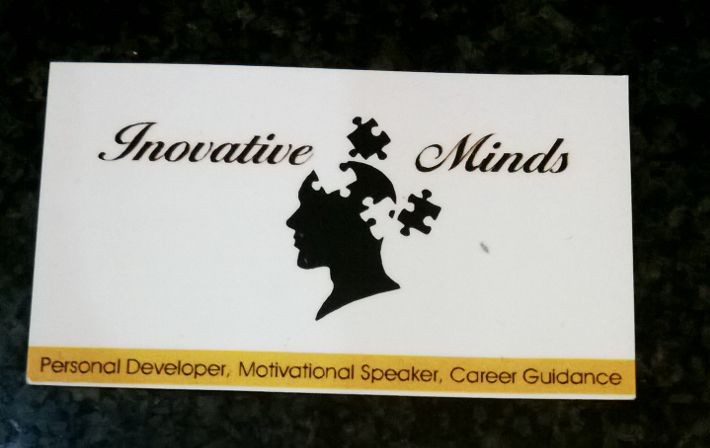Written by Delani Makhalima
Whenever you enter in a relationship, its important to be cognisant of the fact that relationships, by nature, have seasons. Similar to the changing seasons of Life, relationships take form and grow organically yet intentionally. With growth there are stages, phases and changes that need to be made; stages where one needs to pay different levels of attention to what it is they are growing. And it’s not everyday that’s the same; not every growth cycle requires the same amount of time spent and attention.
Unknowingly many of us put limitations and unwarranted rules on how this should be when it comes to spending time with our partners. We psychology-box ourselves and feel trapped when we don’t get what we want. I’ve discovered that the more we refrain from demanding time to be spent, the more liberated and at peace we become. Refrain from putting restrictions and boundaries that can be detrimental to growth may stunt the flexibility or spontaneous aspects of the relationship. Your partner must desire to spend time with you and be inspired to be around you – that’s how you get the quality when spending time together.
Too often we put pressure on people to be around us and spend time with us, like a mandatory work assignment. This creates the feeling of dread and often does not produce the desired result. We soon learn fast from doing so that we do not get the result of quality with them, but rather the repercussions of a forced hand that breeds quantity boredom as there is very little inpiration. Forcing time on your partner is kind of like trying to feed an infant who has no appetite to eating at the time.
As we practice Love it is imperative we learn this simple truth for our added benefit:
QUOTE2NOTE :*”People like being around people who make them feel good about themselves” – Delani Makhalima
Meaning, you need to stimulate a desire for your person to want to be around you. This means that your partner’s desire of wanting to being around you, is largely driven by how you make them feel when they are around you. Our practice of Love must be deliberate in ensuring that we consistently create a good feeling inside them and around them, to activate and stimulate their desire for wanting to be with us. So often we leave much of our relationship growth to chance. We often say things like, “If my partner wants to spend time with me, they will”. This is treacherous and highly dangerous. It leaves you in a position of having little to no control over your circumstance. I want to urge you and show you how you can take charge of your ways and assume a little more control on impacting how your partner decides on spending time with you.
Let me give you an illustration:
One of the rules in Love is, “Love is Kind”. Kindness helps stimulate a desire for your partner to spend time with you. This deliberate act of kindness is in when speaking or doing to someone; it creates a positive feeling. The measure of the kindness we give when speaking or doing, determines the measure we get back. For instance, if someone who is rude, impatient and constantly easily annoyed – this doesn’t attract many friends. A person who is sulky, never stops complaining and is moody most of the time, also doesn’t entertain many friends. Those negative aspects have negative repercussions, largely impacting on why people do not enjoy surrounding themselves around such a person.
Keep in balance your attitude and temperament. Practice to charge your atmosphere with positivity. Be deliberate in creating an environment of comfort, openness and spontaneity. After doing so you will discover that, asking your person to be around you won’t be much of a chore or a difficult request. They will actually seek you out and miss you often.
Should you however, still find yourself doing all those ‘kind” acts, and still they do not spend time with you, it’s important to ask the correct questions. By asking the question correctly and directly you should get a better response in identifying where you’re going wrong. Avoid asking your partner, “When are you going to spend time with me?”. This will not lead you to the root cause of why they are not spending time with you. Rather consider asking, “Is there anything I do, that prevents us from spending more time together?” This type of question takes responsibility and directs the solution into your hands. If there is something that you’re doing, you are in a position to decide on how to impact a more positive change on you. Remember, you only have power to change You. Again, I urge you to speak in kindness in order to avoid turning this line of questioning it into an agrument. Be delicate, although avoid beating about the bush. Get to the point. Listen to where you are going wrong, because only you have the power to change what “you” do.
So many people, some often we think that they are not the problem, and that their partner is or something else must be. So often we see ourselves as the better person and we think of our selves are the more “reasonable” ones. Herein lies the problem.
QUOTE2NOTE:, “Many of us are in one or more ways the biggest problem in our relationships. We deceive ourselves to thinking that “being ourselves and the way we are” is fine and that everyone around us must just deal with who we are.”
Here’s the thing, not all of us were raised right or properly. And not all of us have the correct manners, approach and have an acceptable behaviour. Not all of us are as reasonable as we would like to think we are. Many of us are actually difficult people. Yet, most of us think we are “okay” and that being who we are in our natural state is socially acceptable. Some of us are highly sensitive, we are really annoying and we irritate people. And many of us won’t ever want to accept that.
Its important to determine how much of you being yourself, is actually responsible in pushing or causing your partner to not being around you. You might not be aware that being yourself is actually contributing to your partner not spending time with you or to your problems.
So, start by communicating verbally with your partner. Ask the right questions. Start with yourself as the problem because in doing so you have the power to change yourself in this season of growth. Be aware that communication also entails timing and voice toning. People are sensitive and in most cases overly sensitive people prove to being the most difficult type of people. You need to create the best time to talk about things, so that you can convey your concerns without casting fault or blame – or sending a misunderstood message. Prepare your partner for the conversation that way; make sure they are aware you desire to be heard and that you would also like their input. Keep it simple and practical. Set an agenda and a meeting request from your partner, so that their time and mind is engaged toward the relationship agenda. Avoid random outbursts and expecting your partner to drop everything and to disengage mentally – just because you feel now is the time to talk and address your issues. Be mature about this, and develop a sense of calm. Your issues are not life threatening so they can wait a little while. Exercise restraint and patience where appropriate.
Avoid being emotional and long winded when you get the chance to talk. Keep an upbeat attitude of kindness and gentleness about the way you speak. This in itself will allow them to feel comfortable to talk to you because of your approach. In order to win their heart in such a matter, position yourself as the one who needs to be guided. Position yourself as the one who has the problem and you need to be shown what’s wrong with you. Remember when you give them the power to direct you, you get to keep them closer to you. If you take their ability to contribute and share their observations of you, they will withdraw from you. People like to feel that their concerns about you are being heard. And that you are willing to give it a try to change. People unfortunately are self absorbed like that. Use this and every other opportunity to actually learn more about who you truly are – in your partner’s eyes.


















